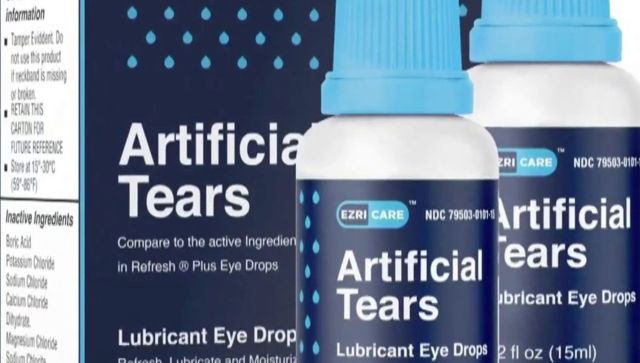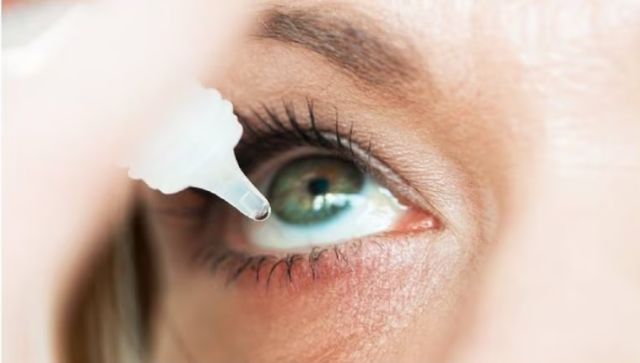Deaths, blindness, and drug-resistant bacteria: Why India-made eyedrops are under scanner in the US
Deaths, blindness, and drug-resistant bacteria: Why India-made eyedrops are under scanner in the US

Indian pharmaceutical companies are coming under increased scrutiny overseas. First, it was the cough syrups that led to the deaths of children in Gambia and Uzbekistan. Now India-manufactured eyedrops are raising concerns in the United States after at least three people died, eight turned blind and dozens were infected. The big fear is the drug-resistant bacteria linked to the drops, which is spreading in the country.
The deadly eyedrops
Global Pharma Healthcare, a firm based in Tamil Nadu’s Chennai, has caught the attention of the Centres for Disease Control and Prevention (CDC), the top medical watchdog in the US. The fatalities, blindness and infections have been traced to eyedrops made by the company and sold under the brand named EzriCare Artificial Tears.
A highly drug-resistant bacteria linked to the imported eyedrops spread from person to person in a care centre in Connecticut and has prompted fears that the strain could gain a foothold in the country, The New York Times (NYT) reported, quoting the CDC.
In December last year, the watchdog linked the Indian eyedrops to an outbreak which affected 68 patients in 16 states across the US. Eight patients reportedly became visually impaired and four had to remove an eyeball.
The drug-resistant strain
According to infectious disease specialists, the strain has not been previously detected in the US and it was difficult to treat with existing antibiotics, the report says.
Maroya Walters, the lead investigator for the CDC’s antimicrobial resistance team, told NYT that the eyedrops are linked to bacteria that is even more drug-resistant than a similar bacteria that the CDC tends to see in about 150 cases per year, mostly in intensive-care settings.
The spread at the Connecticut centre was among asymptomatic patients who had the bacteria colonised in the body. This occurs, when patients touch common eyes or when healthcare workers transmit germs, the newspaper report says.

The bacterium identified as Pseudomonas aeruginosa is a big threat to people with poor immunity like patients with catheters and breathing tubes and residents of nursing homes.
Dr David van Duin, an infectious disease specialist at the University of North Carolina School of Medicine, told NYT that the resistant pseudomonas was difficult to eradicate, both from healthcare facilities, where it clings tenaciously to sink drains, water faucets and other moist environments and from patients who develop bloodstream infections.
Also read: A look at the big problem of spurious drugs
Imports stopped
The US Food and Drug Administration, which regulated over-the-counter medicines in the country, has stopped the import of the eyedrops. The agency said that it had not inspected the factory in India where the product was made before the infections were reported. However, it had visited the plant operated by Global Pharma Healthcare, NYT reports.
The agency conducted an unannounced inspection at the plant in India from 20 February to 2 March and found that its sterility practices were below par. Clean-room operators were not qualified for the job, there were greasy deposits on machinery in a room where bottles were filled with eyedrops and no procedure was followed to clean one of the filling machines, the report says.
The FDA also warned that the contaminated artificial tears can result in death or blindness. It has also called for a recall of Delsam Pharma’s Artificial Eye ointment since it is made in the same factory as the eyedrops and they fear possible contamination. “Patients who have used EzriCare or Delsam Pharma’s artificial tears and who have signs or symptoms of an eye infection should seek medical care immediately,” the US medical watchdog said on its website on 21 March.
‘My life has never been the same’
Sixty-eight-year-old Clara Elvira Oliva, a contact lens wearer from Florida, used EzriCare Artificial Tears to moisturise her eyes as recommended by an ophthalmologist. But in August last year, her right eye started oozing, and turned red and itchy, according to the NYT report.
The irritation persisted and her eyesight started deteriorating. By end of the month, she needed a cornea transplant. But her eye was ravaged by the infection, and after the surgery, doctors said that they would have to remove it. “Since that day, my life has never been the same,” she told the newspaper.
The vision in her left eye, scarred by the use of the drops, continues to deteriorate. She finds it difficult to read, cook and drive.
Olvia’s lawyer is investigating at least two cases of patients, who went to the same clinic and developed similar problems.

Production stopped
The pharma company, which is located about 40 km south of Chennai, stopped the production of the eyedrops in February. It has also voluntarily recalled at the consumer level all unexpired lots of EzriCare Artificial Tears and Deslam’s ointment.
On 1 February, Global Pharma said that it had “not determined whether our manufacturing facility is the source of the contamination.”. On its website, EziCare said that it marketed the drops but had no role in the “actual manufacturing of the product”.
The drops were also sold in the US by large retailers like Wal-Mart and Amazon.
Also read: Explained: How cough syrups can lead to deaths
Cough syrup-related deaths
The eyedrops are the latest Indian pharma drug which has come under the scanner. Dozens of deaths were reported among children in the Gambia and Uzbekistan last year allegedly because of Indian cough syrups.
In Uzbekistan, 18 deaths were reported. The case was similar to the Gambia, where a parliamentary committee linked the deaths of at least 70 children to cough and cold syrups manufactured by New Delhi-based Maiden Pharmaceuticals.
With inputs from agencies
Read all the Latest News, Trending News, Cricket News, Bollywood News,
India News and Entertainment News here. Follow us on Facebook, Twitter and Instagram.
What's Your Reaction?



























































